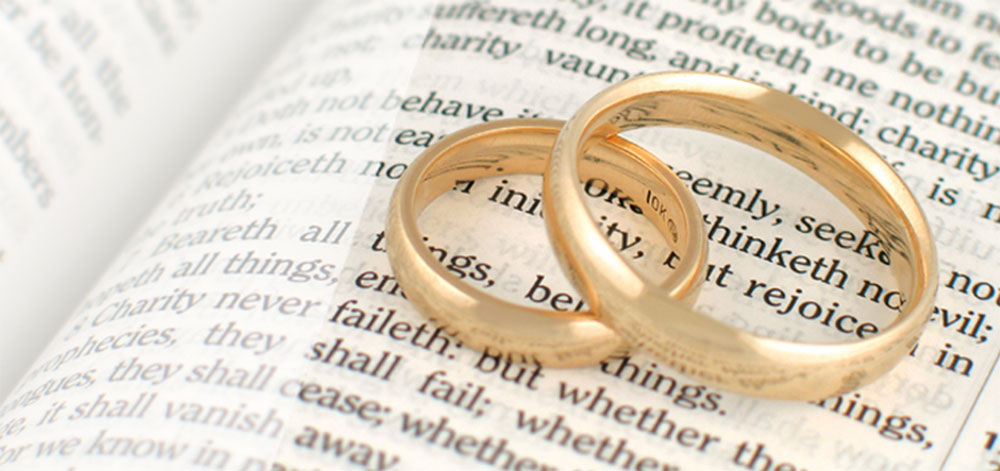 Agencies
AgenciesMarriage breakdown is unique among life's experiences. There is nothing which can prepare or equip a person for the trauma or grief which is involved. The breakdown of marriage is a process which spans years of one's life and is not just restricted to when the parties actually separate.
Separation and divorce are preceded by a history at least as long as the marriage itself. The causes often reach back to the wedding day, to the time of courting, or to the childhood environment of one or both parties. The ending of a marriage is a critical time for all concerned. Both parties may have invested a major part of their lives, their resources, their hopes, their dreams in the relationship.
The Church is aware of the stresses in our modern world associated with marriage breakdown and divorce. The Church endeavours to reach out to the pain and hurt of a divorced person, while upholding the permanence of a valid marriage. By declaring invalid those marriages which fall below the minimum standards set by Canon Law, the Church protects the dignity of marriage for those couples who have a valid marriage.

After a marriage breakdown it is possible to apply to the Church for an annulment. To help you decide whether you may be eligible read the following:
An annulment (decree of nullity) is a declaration by the Church that particular marriage consent was not valid according to the Church's laws. This does not mean that the parties are free of the continuing obligations of the union such as the welfare of children. An annulment does not deny there was a wedding ceremony or that a relationship existed. Nor does it comment on any moral fault in the parties. Rather, a decree of nullity is a declaration by the Church that, at the time the couple attempted to exchange wedding vows, an essential element was lacking in the consent of at least one of them and thus the union which followed such a consent was not valid according to the Catholic Church's understanding of marriage.
Church law states that the children of an annulled marriage are considered legitimate (canon 1137). An annulment affects only the marital status of the parties themselves and then only according to Church law.
In Australia, ecclesiastical annulments have no civil effects and a civil divorce decree must be obtained before any formal action to investigate a marriage may be taken at a Catholic Tribunal.
Any divorced Catholic has the right to ask for an investigation of a previous marriage by the appropriate Tribunal of the Church. Any non-Catholic divorced person remarried to a Catholic, intending to become a Catholic, or intending marriage to a Catholic has the same right. Only a party to the marriage, however, may apply.
It is a requirement of canon law that the other party be informed of the investigation and given the opportunity to participate in the investigation.
When it is considered by the Tribunal that there is sufficient evidence for a decision to be reached, the formal (and private) sessions of the Tribunal are held. The parties are not required to attend. The defender of the marriage bond is always present to uphold the ideals of the Church on marriage and its permanence. The decision will be made by judges of the Tribunal, and they will declare either that the marriage is certainly invalid or that the evidence does not prove invalidity with certainty and so the presumption that the marriage is valid remains.
The case may then be forwarded to a Second Instance Tribunal. This Tribunal has the task of reviewing some decesions. If it ratifies the judgement, a decree of nullity is issued. In more complex cases, this review may take quite some time and there is no guarantee of an affirmative decision.
Each application is dealt with individually. Where a person has been married more than once each union needs to be considered separately. Where both parties to a proposed marriage have been previously married, each union would need investigation. Due to the number of applications and the varying factors involved in different cases, no time can be specified. Often an applicant is informed of a decision within a year of presenting the written submission to the Tribunal office, but the average time for an outcome is between twelve and eighteen months.
A booking for a Church wedding should not be made until a personal notification that a person is free to marry has been sent to the celebrant. An affirmative decision is never guaranteed until final ratification. Setting a tentative date before a final decision has been given often leads to disappointment since the investigation is a trial of the marriage and, like all trials, the outcome is subject to unforeseen difficulties. Setting a date for a wedding before the final decision is known places the applicant and their proposed partner, not to mention the Tribunal staff, under unreasonable and unnecessary pressure.
For more information, please contact Cathy Dougan or call (03) 5622 6600. Our office is located at Sion House, 6 Witton St, Warragul.